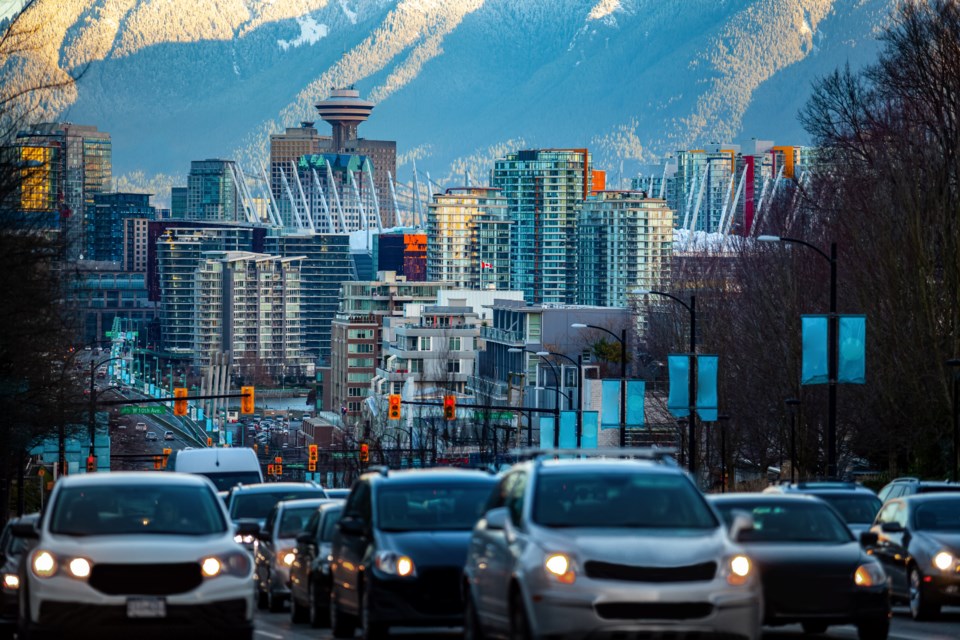For family reasons I’ve been driving the highway a lot lately, all the way through Vancouver to sunny Richmond, which gives me a lot of time to think—mostly about why it sucks so badly.
You’d think the reason would be traffic and the sheer number of vehicles on the road at any given time. And at the strangest times as well—driving through the city at 10 p.m. on a Sunday night isn’t much different than 10 a.m. on a weekday.
But the reality is I don’t necessarily mind traffic, at least not when people are behaving. Not when it’s fair and everyone is equally crawling. You can listen to music, relax, look around, have a conversation, and generally ponder the meaning of life.
But people don’t behave—they get angry and impatient, drive more aggressively, follow too closely, change lanes any time there’s an opportunity to gain all of a vehicle length, cut you off while changing back into your lane, get themselves stuck in the middle of backed-up intersections they shouldn’t have entered, run red lights, refuse to let people in, and generally make the traffic experience worse for everyone. And for what? How many minutes can you really gain driving like a complete arsehole?
Instead of relaxing and waiting it out, the tension builds, the horns start, and the vibe shifts from “what are you gonna do?” to “every driver for themselves!”
There have been all kinds of studies on the causes of traffic and aggressive driving is a big part of it. For example, any time someone has to slam on their brakes to avoid an aggressive driver it can cause a chain reaction through the entire traffic column that leads to a jam. Same thing when someone is following the vehicle ahead too closely and repeatedly tapping their brakes.
Aggressive drivers also cause more accidents and generally force everyone else to drive more defensively and tentatively to avoid getting hit. For example, not knowing if vehicles are turning or not because the drivers are too cool to use their signals (shout out to all the pickup drivers) really makes it hard to know what to do heading into an intersection.
Similarly, we know that if people calmed down and drove the speed limit, left space, signalled their turns, stayed in their lanes, merged properly, etc., then everybody would get to their destinations faster. Instead, a handful of loose cannons are creating traffic havoc everywhere they go.
Speaking of which, the province recently created the ultimate road-rage inducer on Taylor Way—a new third lane on the southbound side I assume is there so drivers can turn right out of the neighbourhood and merge with the bridge traffic, or so drivers can pull out of bridge traffic to get to Park Royal or Marine Drive. How that lane gets used is a different story.
Every time I pull up to the traffic column I see cars—and they’re almost always nice cars—pull out and try to use that new third lane as a passing lane, pushing their way ahead of all the other vehicles waiting patiently in traffic.
Some people may honk to indicate they’re unhappy, but these people don’t care because this jerk move is absolutely a time-saving measure. The volume of traffic in rush hour means maybe half a dozen cars can make a left turn from each lane at the lights, and that light at Taylor Way and Marine Drive takes forever to cycle. Cheating with the third lane on Taylor Way can easily cut five to 10 minutes off your trip into the city.
It always seems like it’s the people who follow the rules who are at a disadvantage these days, which doesn’t seem fair. There’s nothing to lose and everything to gain by driving aggressively.
The province has done a few things to try to calm traffic. For example, a few years ago they started to ticket slower drivers for blocking passing lanes. As well, the province has started to ticket drivers that enter intersections late and/or with nowhere to go and get stuck there, blocking pedestrians and cross traffic. They’ve also added more cameras to catch drivers running red lights.
But we could be doing more. Speed cameras, for example.
ICBC just announced a “Usage Based Discount” program for drivers who go less than 10,000 kilometres in a year—the reason being that you’re on the road less and therefore less likely to get into an accident. But I would argue “how” you drive matters more than “how far.”
It’s 2024. My watch talks to my oven and has its own built-in GPS. My in-law’s car can park itself. The technology exists today to properly reward people for driving safely—keeping close to the speed limit, not tailgating, not running red lights, not turning or changing lanes without signalling, etc. Install a GPS and camera-enabled snitch device in everyone’s car that determines how much insurance you’ll pay next year and watch what happens on the roads. If my car could also snitch on other vehicles around me doing dumb and dangerous things, then so much the better.
Or we could keep the current situation where aggressive drivers are rewarded for making traffic worse and our roads left safe.




